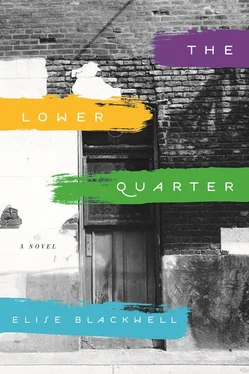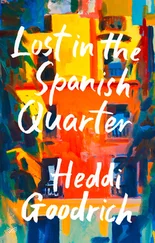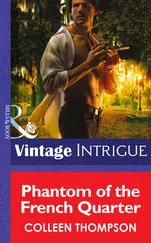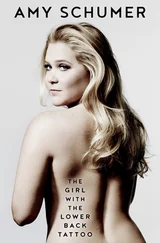But life was nothing like the comforting game when her parents died in quick turns — too late to turn her into a storybook heroine but before they could help her get a start in life. Her brother, her only sibling, was no Terrence, and their names shared few letters. He was just a fuckup who hadn’t really meant to screw her over but had done so just as surely as if he’d tried. It had taken him less than two years to shoot up not only the furniture store her parents had made their modest living operating but also the second loan on the Ocean Springs house she had grown up in — a house recently obliterated, not that it mattered anymore.
Marion had dropped out of Mississippi State, where she’d done well in her art classes and well enough in the others, and racked up more loans to earn a massage-school diploma. Before the storm she’d worked at Beau Rivage Casino and Hotel in Biloxi and then after the storm trekked up the Delta to the spa at the Alluvian Hotel, where there weren’t enough clients to cover her expenses, not even in the Viking Range — subsidized town of Greenwood.
Beau Rivage was rebuilding quickly and would have had her back, but she didn’t want to return to the coast or to a casino — a place where people wagered their lives away one small stake at a time. If she was going to start over, then she wanted to start over. She had no people left on the coast, anyway, besides a few old friends who weren’t much good for her and the brother she no longer talked to. He’d evacuated to Houston, someone had told her, but she didn’t know for sure or much care.
Marion had never minded the massage work. She’d discovered that you learn a lot about people from their bare backs. She could name her clients’ ages to within a few years — the older they were, the more accurate her estimate, a fact that seemed backward to her, as counterintuitive as the rest of her life. If they were fat as well as old, she could glean how fast they had got that way, whether suddenly from a recent addiction to packaged food or slowly, perhaps from alcohol’s secondary depositing of internal fat or a happy lifetime of rich food. She could read less of the younger ones’ lives, their bodies still mostly unmarked, undetermined. Blank like their fates. As bad as she had always been at understanding the past, she’d never been able to see the future in any way that came true.
Often but not always she could tell if someone’s visit was the regular maintenance of the wealthy or a rare luxury, perhaps a birthday gift from another or to self. When she could tell this, which wasn’t always, it was by how much pleasure they pulled from her touch and, sometimes, by how easily they submitted. Though she loathed the wealthy, she never varied the quality of her work. When she worked, she did what she was paid to do as well as she could every time — mostly but not only for a good tip. She’d been able to discern no relationship, positive or negative, between wealth and tipping behavior. Sometimes the rich were generous, sometimes stingy. Sometimes the poor were frugal, and sometimes it was easy to see why they didn’t have two dimes to rub together most of the time. She took note of all of them, finally determining that the middle wasn’t a bad place to be and would be her goal if she ever in her life had any money to squander, which usually seemed like never.
It is no small thing to make people feel good, to give them an hour of respite, press away knots in their muscles, make them forget their lives. Yet she’d never confused her work with a noble calling like some of her New Age coworkers. It was her day job, though not the worst she had held, and she was always glad to have finished the shoulder blades of her final customer, to pull up the sheet and turn off the light and say, “Stay as long as you want, and check out up front.”
How easily her expertise transferred from giving pleasure to giving pain — or pleasure through pain — surprised her when she thought about it, which she mostly did not. If a person could live an unreflective life by choice, then that was what she did. Besides, she was just doing it for the money until the tourists came back. That she should have gone farther than New Orleans was an idea that came to her regularly and one she pushed away each time. She’d gone as far as she could afford to go, and later, when the tourists came back, it would look like it had been a good idea all along.
She chose not to meditate on her life generally, but it was harder than she would have thought and had to be enforced in small ways nearly daily. As she biked up St. Charles, she felt a thought at the border of her mind, felt it like water seeping under a door. She sealed the crack and pedaled on, navigating occasional piles of rubble, small mountains of stone, a toilet inexplicably sitting on the streetcar tracks. As she rode, she looked left and right at the fine old houses, many of which looked not merely evacuated but long empty, like a restored ghost town or the set of a movie.
At least one blue blood was back, though, if the address in her pocket could be trusted as an accurate indicator. Almost to Tulane, she thought the number was, and pedaled harder. He would not appreciate her being late. He would be the kind of man who was accustomed to others waiting for him — probably why he was hiring her to put him in his place. Not a true masochist but a man who enjoyed handing over power because he had so much of it. A short respite from responsibility, that was what most of them wanted. Yet she was still fairly certain that he had written both ads, the one she’d answered and the one she’d wanted to answer, which made him something other than most of them. That this was why she had come was another idea she sealed out when she sensed its approach.
She’d heard the stories about Audubon Place, how the rich people who lived there had hired Israeli military to guard their houses when their own federal government wouldn’t even drop bottles of water over the city. Macho movie actors with too-long, thinning hair cruising around in Hummers with bandoliers strapped to their chests, guests of mercenary security outfits. People at Molly’s said it was all true, and that wasn’t the half of it. Shots taken at black men for sport, on a bet, and worse still. She gave her name at the gondola next to the gate and was waved through by a tall, square-jawed man whose looks made her believe that any of the stories could be true, though she couldn’t spy a gun in plain sight.
The house was grander even than she had imagined but ugly — not a whimsically painted Victorian, like many of the large houses on St. Charles, but a vulgar stone thing. A fortress with small and opaque windows. An obscenity, really, surrounded by ridiculous statues of perfected nymphs, thorny rosebushes everywhere. Unlike most of the other houses nearby, it had no front porch. Its architecture was designed to keep out rather than to welcome. If she disappeared into a basement dungeon, no one would ever know except perhaps the guard in the gondola, who would be the one to help cover up the crime. She should have run this through one of the agencies. Instead she risked a lifetime of torture so she could pocket the full fee, or perhaps for the reason she kept at bay.
She had left at home a letter detailing where she was going and why. It wouldn’t save her, but it might stop him from getting away with it. If some asshole was going to kill her, she wanted him to get caught and sit in his jail knowing it was because she’d planned ahead, knowing that he’d underestimated her. She pictured him vague-faced and tormented, the bars of his small cell casting shadows diagonally across his face, the sound of heavy breath — a menacing presence one cage over. The future girls whose lives she’d saved would never even know they had been in any danger, making her act all the more noble.
Читать дальше












